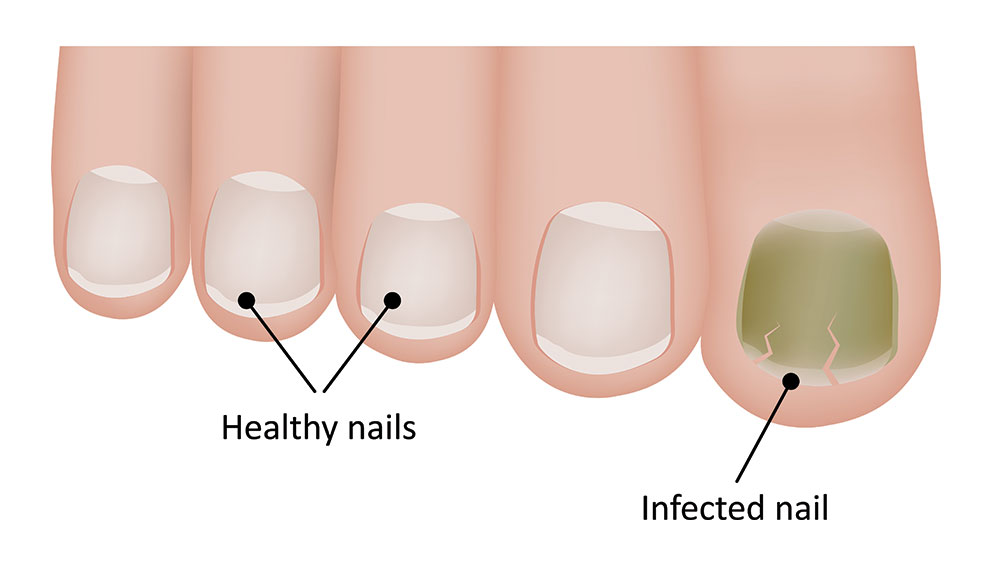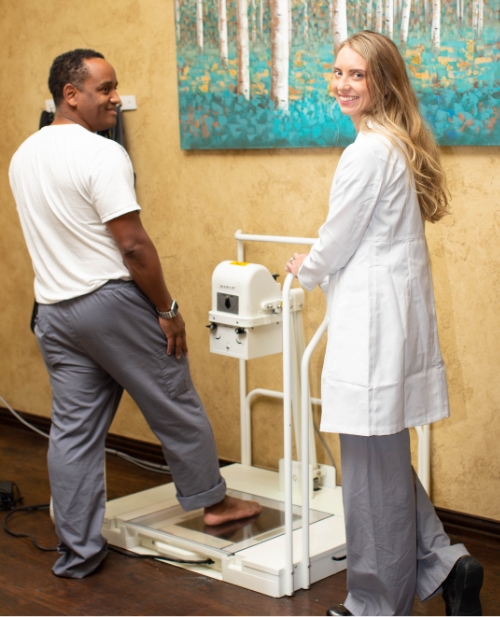
Although often harmless, a fungal toe can quickly develop into a painful infection. Many of Dr. Verville’s Frisco patients do not notice the first signs of fungal toe because they are often subtle and hard to recognize. But, identifying changes early on and going for immediate treatment can prevent the infection from spreading to the surrounding skin and between toes (Athlete’s foot).
What Is Fungal Toe?
Fungus is already present in our bodies, but can start to overgrow as a result of health conditions or external risk factors. Starting as a small yellow or white spot under the toenail, fungal toe is usually not painful and can often be treated at home if caught early on.
Fungus is even easier to get on feet because it prefers the warm, dark, and moist environments provided by a shoe and sock.
How Can I Get Fungal Toe?
Anyone can get fungal toe and can soon develop a more serious problem because it easily spreads when you:
- Walk barefoot in public showers or locker rooms.
- Swim in public pools.
- Frequently get pedicures.
- Injure your nails.
- Mainly wear closed-toe shoes (sneakers, high heels, boots).
- Having moist toes for a long period of time.
The other factors that predispose you to fungal toe infections are:
- Diabetes
- Diseases that affect blood vessels
- Weakened immune system
- Athlete’s foot
There is also a higher risk of fungal toe if you are an older man because you are more likely to have many of the conditions for fungal toe.
When Should I See a Podiatrist?
Fungal toe is frequently mild and will not give you any discomfort or foot problems. If you catch this problem early on you can try some of the home treatments listed below. However, if the symptoms worsen or you have another medical condition, you should immediately schedule an appointment with Dr. Verville if your toenails are:
- Misshapen
- Difficult to cut
- Thick
- Brittle
- Crumbling
- Painful
- Lacking shine
- Darkened
- Accumulating dirt under the nail
If you are experiencing one or more of these symptoms it means that you have a fungal toe infection and it can easily spread to your other toes or the surrounding skin.
What Treatments Are Available?
During your appointment at the Frisco office, Board Certified Dr. Verville will perform a full exam of your feet to evaluate the extent of fungal toe infection. If you have dirt under your toenail she may send a sample to a lab for a precise diagnosis. Once Dr. Verville has identified the severity, she may prescribe:
- Oral antifungal medication
- Medicated polish
- Topical medication
In most cases, this will resolve fungal toe, but if your case is more severe then Dr. Verville may need to surgically remove your nail or use laser and light-based therapy to eliminate all traces of fungus.
Preventing Fungal Toe Infection
If you have had a fungal toe infection, it is likely that you can easily get it again if you are not careful. Here are some tips for preventing another outbreak:
- Purchase socks that are sweat absorbent.
- Wash feet and trim nails regularly.
- Wear sandals in public places.
- Replace old shoes with new ones that reduce humidity (open-toe shoes).
- Select a nail salon that sterilizes instruments and cut down on wearing polish.
These tips will ensure that your toenails are clean, healthy, and unlikely to get another fungal nail again.
If you have a painful fungal toe infection, call Dr. Verville’s Frisco office at (214) 385-8822 to schedule an appointment.







